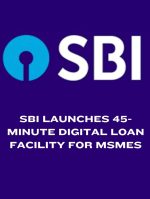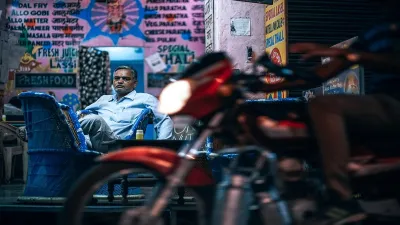By Saahil Goel
MSME Day 2024: India’s e-commerce market is experiencing an exhilarating surge, poised to reach an astounding $300 billion by 2030. This remarkable growth is not a mere coincidence but a dynamic force propelled by MSMEs, the backbone of the Indian economy. The days of limited options and location woes are fading fast. In a world where comparing prices across countless sites takes mere seconds, online shopping has become the go-to option for many, eliminating the hassle of visiting multiple stores for their needs.
With over 700 million smartphones now in use across India, affordable data plans, and initiatives like Digital India, digital penetration has reached unprecedented levels, making convenience a top priority for consumers. With just a tap on their smartphones, consumers are greeted by a world of products – not just a generic selection, but one curated with their preferences in mind – delivered right to their doorstep.
The deeper penetration of e-commerce is transforming the shopping experience in remote villages and tier 2 and 3 markets across India. Imagine a mother in a remote village, with a simple tap on her phone, accessing a world of products – from educational toys for her children to the latest saree trends. In the past, residents of these areas faced significant challenges in accessing a wide variety of products, often limited to local stores with restricted inventory.
Today, e-commerce platforms are bridging this gap, offering an extensive range of goods from national and international brands. The convenience of online shopping, coupled with efficient delivery services and reliable payment options, has made it possible for consumers to enjoy the same shopping opportunities as those in urban centers. This widespread accessibility is not only enhancing the quality of life but also stimulating local economies by providing new business opportunities and fostering greater market competition.
Remember the charming local shopkeeper who knew your preferences and shared anecdotes about his wares? Social commerce platforms like Facebook and Instagram have breathed new life into this tradition. MSMEs can now set up virtual storefronts, weaving stories around their handcrafted products and innovative services. They can connect directly with customers, fostering a sense of community and trust. The rise of social commerce isn’t just about transactions; it’s about empowering the entrepreneur to become a storyteller, sharing the passion and heritage behind their brand. This shift in consumer behavior, further accelerated by the pandemic, has sparked a digital shopping revolution, and MSMEs are the fuel propelling it forward.
From Offline to Online: A Journey of Transformation
A decade ago, the idea of MSMEs thriving online seemed like a distant dream. Many faced significant barriers, from lack of digital literacy and inadequate infrastructure to limited access to capital. The e-commerce landscape was dominated by larger players, leaving little room for smaller businesses to carve out their niche. Of all the MSMEs integrated into e-commerce to date, a mere 12.7% did so between 2011 and 2015, indicating an initial reluctance among MSMEs to adopt e-commerce. However, this integration nearly quadrupled between 2015 and 2019 and has continued to increase steadily since then.
The positive development is due to their determination and the digital transformation wave supported by e-commerce enablement platforms, coupled with government initiatives like Digital India and Make in India, MSMEs have broken through the barriers gatekeeping digital commerce. The same enterprising spirit that inspired the first trader to fit a wheel into their cart now drives shopkeepers in India to move their businesses online. With just a click, products once out of reach are now easily accessible, making distances virtually disappear overnight. Affordable smartphones, widespread internet connectivity, and digital platforms have empowered them to transition from traditional operations to dynamic online businesses. Their success is a testament to their resilience and adaptability.
MSMEs: The Powerhouse of Innovation
MSMEs in India are more than just businesses; they are beacons of creativity and ingenuity. With over 63 million strong, MSMEs contribute around 30% to the GDP, constitute 48% of the exports, and provide livelihoods to more than 120 million people. Their ability to innovate and adapt quickly sets them apart, making them the major fuel source behind India’s economic engine.
Whether a small-scale artisan integrating traditional craftsmanship with modern designs or a tech-savvy startup developing cutting-edge solutions, MSMEs’ commitment to innovation is inspiring.
Consider Aadil Qadri for instance, who transformed traditional attars into contemporary fragrances, merging heritage with modern appeal by utilising his digital marketing expertise. By leveraging technologies such as artificial intelligence, machine learning, and blockchain, MSMEs are not just keeping pace with the times—they are shaping the future. Their products and services are meeting local demands and gaining international recognition, showcasing the immense potential of Indian ingenuity.
Going Global: MSMEs on the World Stage
MSMEs are now reaching global audiences. Indian MSMEs are selling products to a global market through international e-commerce platforms like Amazon, eBay, Joom, and Alibaba. Simplified cross-border trade regulations, international payment gateways, and efficient logistics solutions have facilitated this global outreach.
Consider the stories of Jaipur-based jewellery brands, which started as small local businesses and now export handcrafted jewellery worldwide. Kerala’s spice producers, who once catered only to local markets, are now essential to gourmet chefs and food enthusiasts across Europe and North America. These success stories are a testament to the transformative power of e-commerce in propelling Indian MSMEs onto the global stage.
Celebrating MSMEs’ Role in India’s E-commerce Future
The $300 billion opportunity clearly shows that MSMEs are not merely participants in the digital economy; they drive it with innovation, resilience, and a global outlook. A study by the Indian Council for Research on International Economic Relations (ICRIER) revealed that post e-commerce integration, nearly 63% of MSMEs made new investments, with over 40% in software and employee training. This highlights their commitment to continuous improvement and adaptation.
Their story isn’t just about numbers – it’s about defying expectations. Traditionally, larger players dominated e-commerce. However, MSMEs are carving out significant space in different sectors which are often perceived as established brands’ strongholds. For instance, a woman-founded toy brand that came across the idea of educational toys to promote independent learning.
Another example is of a comfort homewear brand. Originating from a family business in Surat, the founders, who were suppliers to major foreign brands, aspired to create a distinct Indian brand. The company has made luxury homeware and loungewear affordable for Indian women. These disruptions highlight their innovative spirit and ability to cater to evolving consumer preferences.
Looking ahead, the focus must be on empowering this digital transformation further. By investing in infrastructure that bridges the digital divide in rural areas, fostering access to credit and financial services, and providing targeted skill development programs, we can unlock the full potential of MSMEs. India’s e-commerce story is being rewritten, not by chance, but by the collective effort and ingenuity of its MSMEs. This is a data-driven revolution with immense potential for economic growth, job creation, and a more inclusive digital future.
Saahil Goel is the MD & CEO of Shiprocket. Views expressed are personal. Reproducing this content without permission is prohibited.


















